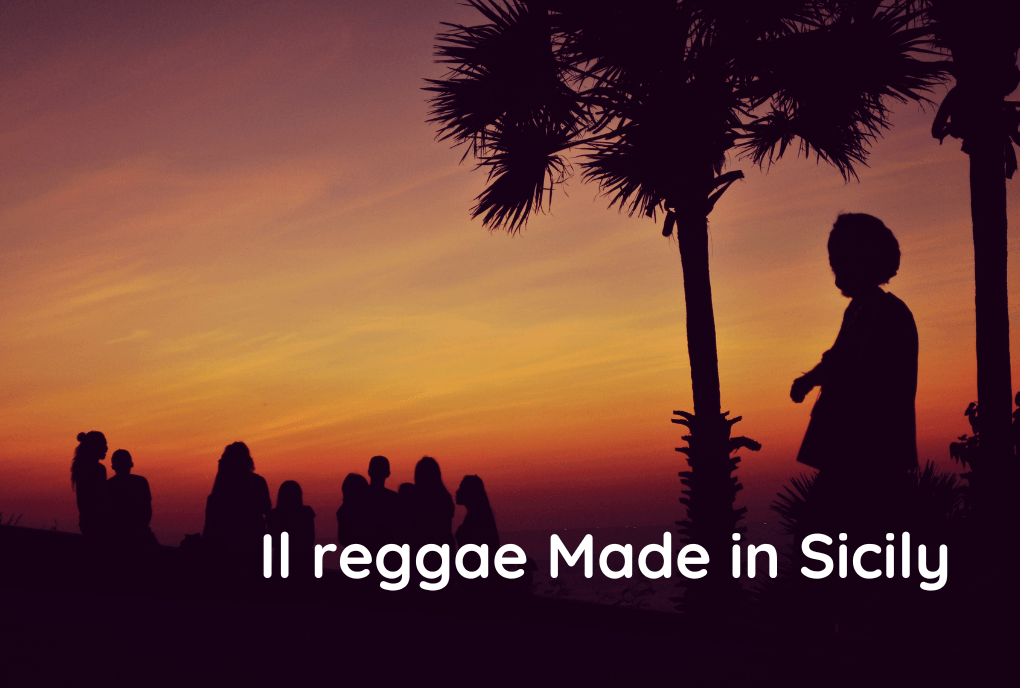
Reggae Made in Sicily
Sicily is the perfect island for those who want to fill their eyes and souls with good food, a beautiful sea, nature and art. It is also perfect, however, for those who want to hear with their ears and heart a music with relaxed Caribbean flavors.
The origins of a new sound
UNESCO World Heritage Site since 2018, reggae music began to spread from the 1960s, in Kingston, the capital of Jamaica. It stems from a mix of tropical and North American sounds, taking up sounds typical of rhythm ‘n’ blues, jazz, and mento.
Notably, in the 1950s, American R&B began to arrive in Caribbean lands. Here, begins to mingle at calypso, a genre typical of Trinidad, to the Cuban rumba and to the mento, Jamaican folk music. Thus was born the genre ska, characterized by wind instruments and upbeat rhythm.
A few years later, ska music undergoes an evolution: the sounds begin to go “in time” with the slow lifestyle of those islands and be influenced by soul. Thus was born the true predecessor of reggae: the rocksteady, made more of rhythm guitars and bass and less of horns.
In the mid-1960s, the reggae style began to spread throughout the world. The credit for this musical explosion is mainly due to Chris Blackwell, an Englishman who grew up in Jamaica and founder of the record label Island. He is credited with launching one of the most well-known artists in music: Bob Marley.
The origin of the name
The origin of the word is still mysterious: the most popular version features the song “Do the Reaggay” by Toots & The Maytals, published in 1968. The term, however, was already in use a few years earlier, and was used to describe a crude and coarse type of music and dance (to borrow the meaning of the English word ragged). Others, however, claim that the name of the music style comes from the reggae language, spoken by an African tribe; still others, including Bob Marley, link it to a Spanish word meaning music of the king.
Sicilian artists
Jamaican music, as mentioned, has made its way around the world and continues to be a much listened to and appreciated genre. It has also contaminated Italian music, giving rise to artists and bands that have mixed the slow, raw rhythm with linguistic elements, such as the Sicilian dialect.
Among the leading artists of what we can call “reggae Made in Sicily“, we mention:
-
The Shakalabs
Collective formed by the four singers Jahmento, Lorrè, Br1 and Marcolizzo, all from the Eastern Sicily, Shakalab have found their strong point in the dialect of their land e in the sounds of reggae and hip hop. On the scene since 2010, their project has led them to be among the most interesting bands in the Italian black music scene. Latest single, Parasite, sees them alongside Sud Sound System, a well-known band from Salento.
-
Jaka
Originally from Erice, Giuseppe Giacalone, aka Jaka, is another of the artists who brings forward the inclusion of the Land of the Sun in the modern music scene. His voice, charismatic and scratchy, perfectly reflects his roots and has allowed him to bring his art not only to Italy, but also to the stage international.
Herea sample of his songs Made in Sicily.
-
Alborosie
Class of 1977, originally from Marsala, Alberto D’Ascola is another of the artists who has taken Made in Sicily music around Italy and the world. To establish a better connection between his passion and his art, he moved to Jamaica, where he built his career to the tune of songs in the Patwa language (the language, precisely, of Jamaicans). His latest release, The Most Beautiful in the World., sees him return to the Italian scene together with Neffa.
Thus, Sicilian culture, with its charm and beauty, has, in turn, contaminated and been contaminated by different cultural and artistic aspects. Music is one of those and allows Sicily to live on in the songs of its “sons” and echo in the world and in the landscape not only in Italy, but also internationally. Because you know, there is no better element than the music to connect cultures, peoples and people, erasing borders and prejudices.
by Beatrice Saura





